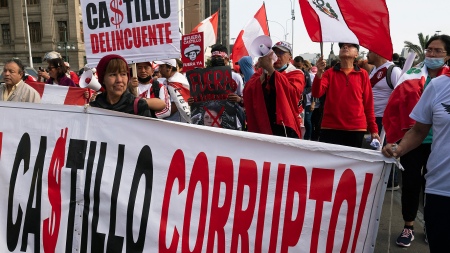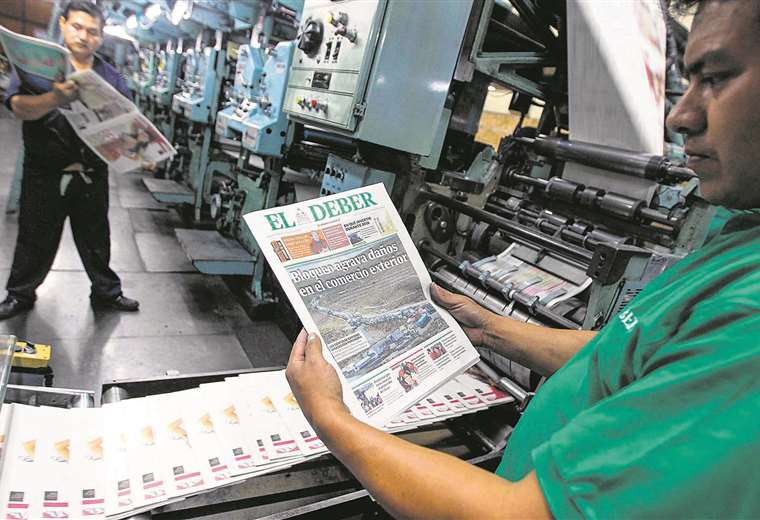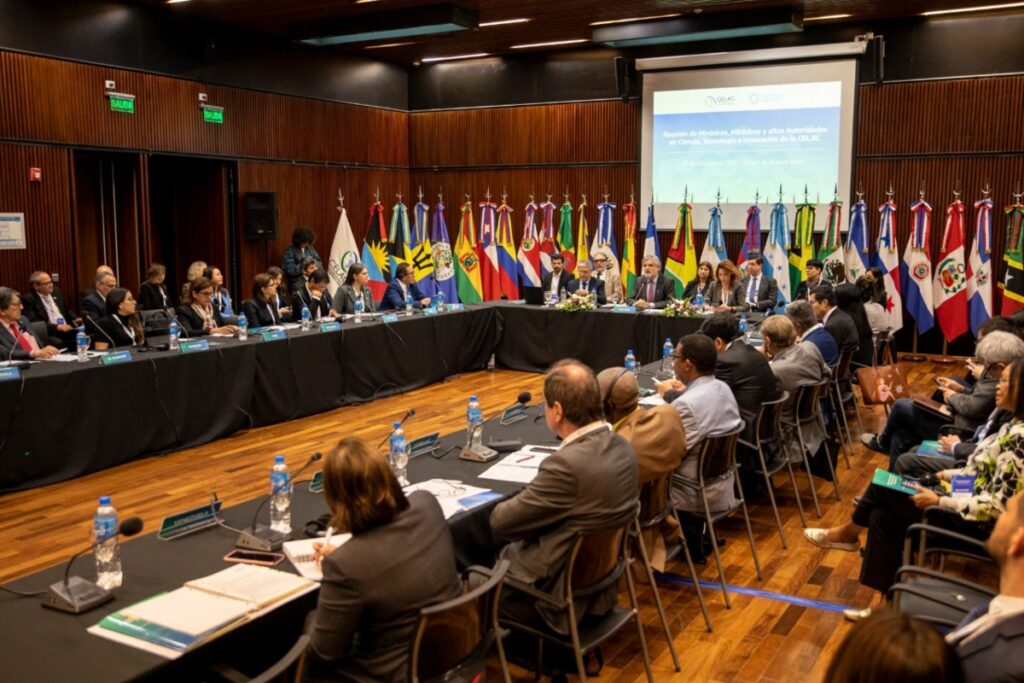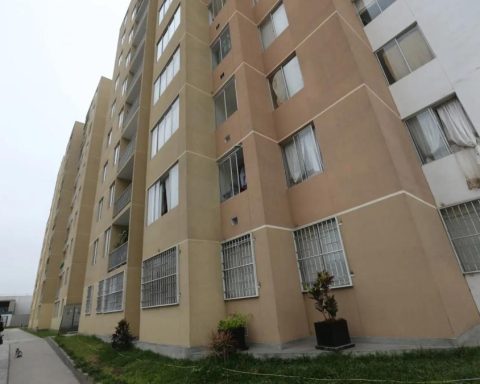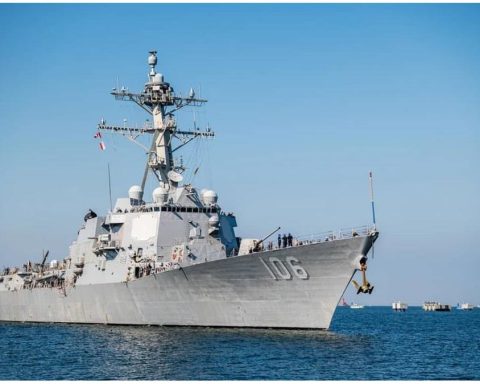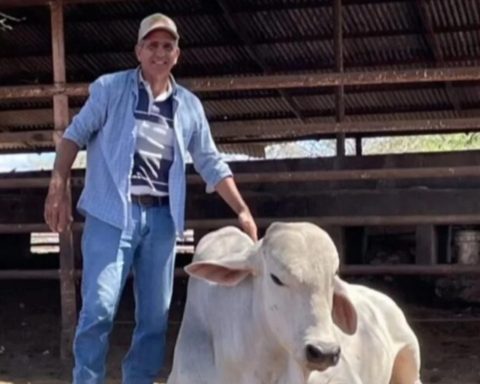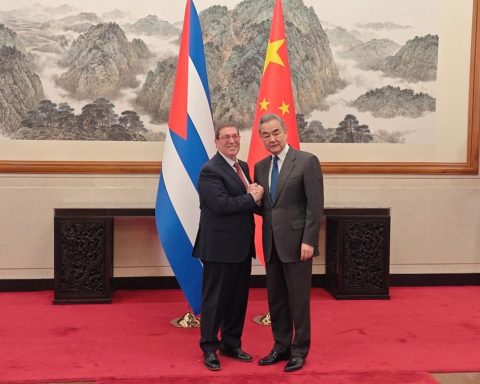The Organization of American States (OAS) expressed this Thursday its “support and solidarity” to the president of Peru, Pedro Castillo, and decided to send a “high-level group” to that country, after the president, with various causes judicial proceedings for corruption against him, ask for help to overcome the political crisis.
In a special session in Washington, the Permanent Council, executive body of the organization, adopted by acclamation the resolution of “support for the preservation of democratic institutions” in Peru and called “all actors” to act within “the rule of law”.
The OAS appointed “a high-level group made up of representatives of the member states, in accordance with the Inter-American Democratic Charterto make a visit to Peru in order to analyze the situation” and then report back to the Council.
It was in response to a request from the president himself, who asked to activate articles 17 and 18 of the Inter-American Democratic Charter, an instrument approved in 2001 to promote democratic principles among the states of the region.
Article 17 contemplates that a country can “request assistance for the strengthening and preservation of its democratic institutions” if it considers that “it is at risk” and article 18 allows visits and efforts to analyze the situationprovided that the affected government authorizes it.
RESOLUTION | Support for the preservation of democratic institutions and representative democracy in the #Peru
(Approved by the Permanent Council of the #OAS in the extraordinary session held on October 20, 2022)https://t.co/oG2xLLAEVw pic.twitter.com/X3HVoCDNcC
— OAS (@OEA_oficial) October 20, 2022
Castillo asked the OAS “to start a consultation process with all the political forces, the powers of the State, and the social forces.” in search of “a path that prevents a serious alteration of the democratic order in Peru”.
Since he took over, in July of last year, Castillo has already faced two impeachment attempts by Congress – dominated by the right-wing opposition – which also forced him to change several ministers.
In addition, the president is subject to six fiscal investigations for alleged corruption, of which his closest family and political circle are also accused.
In the past week, The Prosecutor’s Office formally denounced Castillo before Parliament, a process that can lead to a political trial and the suspension of the president, who considers himself the victim of a campaign to remove him from power. In fact, in his request to the OAS he warned of the chance of a “coup d’état” in the country.
But the OAS supported the Peruvian government and the “preservation of democratic institutions” and stressed that all state institutions are constitutionally subordinate to civil authority.

Furthermore, it was declared willing to “provide support and cooperation” through efforts “to promote dialogue and strengthen its democratic system of government,” according to the AFP and Sputnik agencies.
On Wednesday night, in a message to the Nation, Castillo had renewed his denunciation of attempts by the right-wing opposition to illegally remove him.
He then explained that he requested the meeting of the OAS Permanent Council to prevent the “serious alteration of the democratic order in Peru” and that the process should serve “to find, with the good offices of the international community, a path that prevents” that court of institutionality.
The formal request from the Peruvian government was presented on October 12, a few days after the OAS, the organization that brings together all the countries of the Americas, held its General Assembly in Lima.
We endorse the resolution of the Permanent Council of @OEA_oficial and we are available to provide support and cooperation, at the request of the Government of the #Peruthrough efforts to promote dialogue and the strengthening of its democratic system of government. https://t.co/ZthtwP9ruz
— Luis Almagro (@Almagro_OEA2015) October 20, 2022
And the Permanent Council announced on Wednesday the session it held this Thursday in the Hall of the Americas at its headquarters in Washington.
In your message, The Peruvian president reiterated that there is an attempted “coup d’état” through the complaint by the Prosecutor’s Office, which is being evaluated by Congress.
“The nation is facing difficult times. Serious accusations are repeated, as serious as they are inconsistent, such as the constitutional complaint filed by the nation’s attorney general,” Castillo said. Wednesday night, the Europa Press news agency reported.
According to the Prosecutor’s Office, the president of Peru would be the head of a criminal organization active in the Ministry of Transport and Communications to favor the Puente Tarata III consortium and other companies in public bidding processes.
The president of Congress, José Williams, explained that the decision made by the OAS Permanent Council is within its powers, but it does not affect the procedures that state institutions have to carry out.
#ServemosAlaNación pic.twitter.com/pxCrURM5JB– Congress of Peru ?? (@congresoperu) October 21, 2022
Congress immediately sent a letter to the OAS to express its willingness to dialogue and explain the “real situation” of politics in the country.
“The Congress of the Republic today sent a letter to the OAS expressing its willingness to dialogue to explain to the representatives of that organization the real situation in the country, and full respect for the Constitution”Parliament said in a statement. The letter bears the signature of Williams and is addressed to Jan Willem, head of the OAS Permanent Council.
“We are ready to be able to receive them and we think it will be good for them to come, to talk to the Prosecutor’s Office, which, with all certainty, has a lot to say and a lot to report; talk to Congress. Obviously we have many things to say to him; surely he will speak with other institutions, with the press,” Williams said, according to the newspaper El Comercio.
While, The United States said it is attentive to the situation in Peru and deemed accountability “vital” for any democracy.
“We continue to closely monitor the political situation” in Peru, State Department spokesman Ned Price told the press, an opportunity in which he considered that the OAS “can potentially serve as a partner in this process.”
